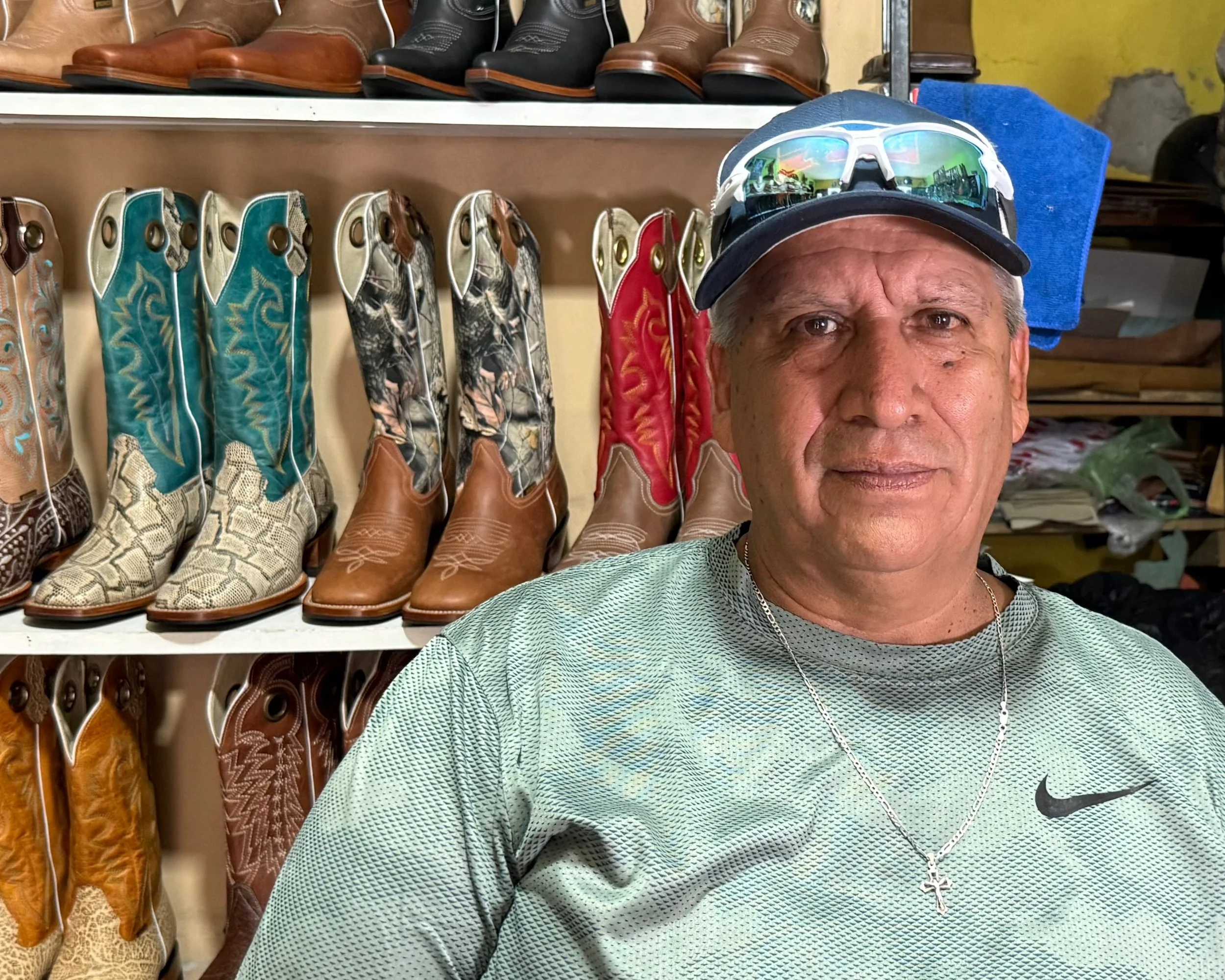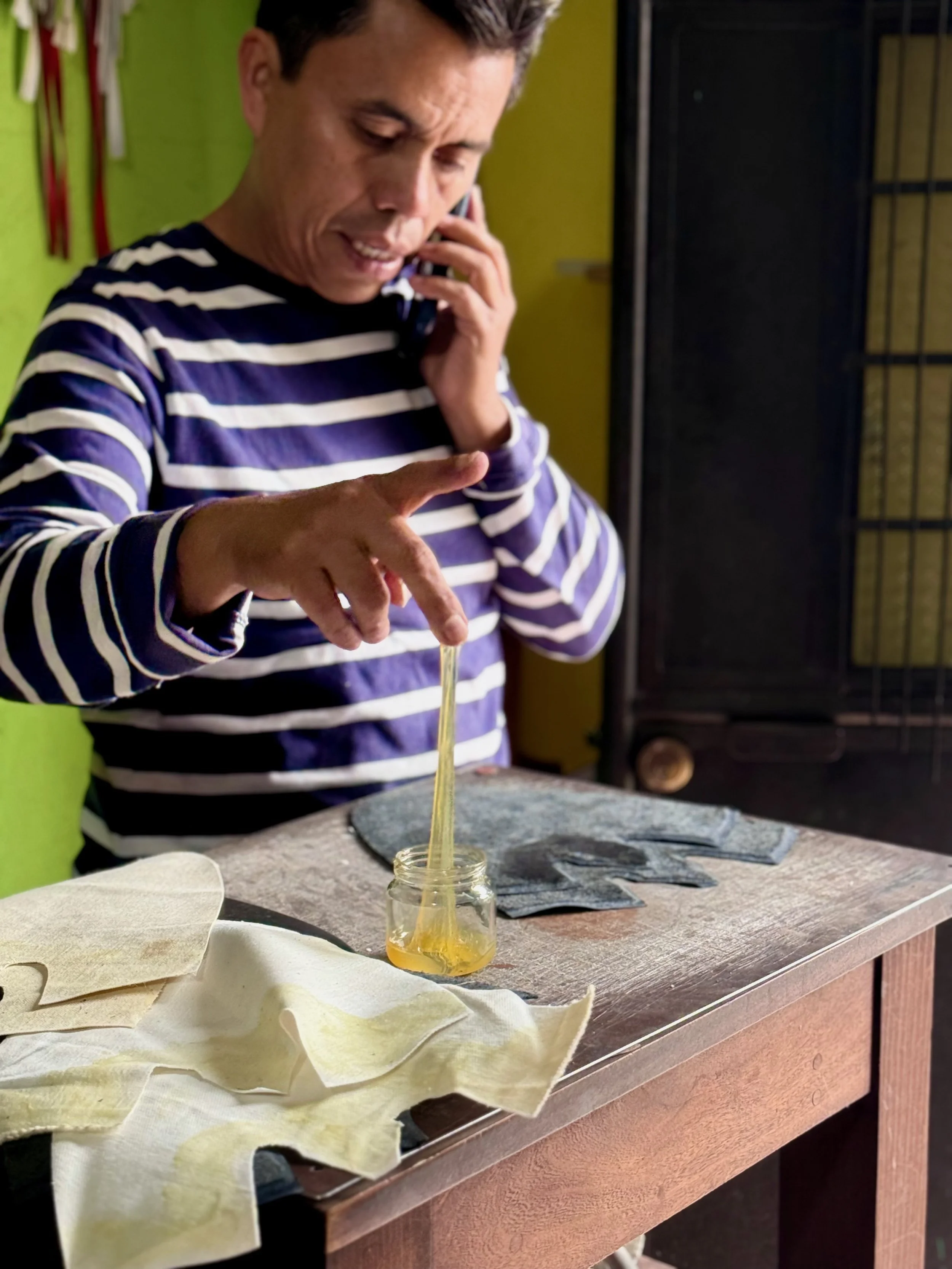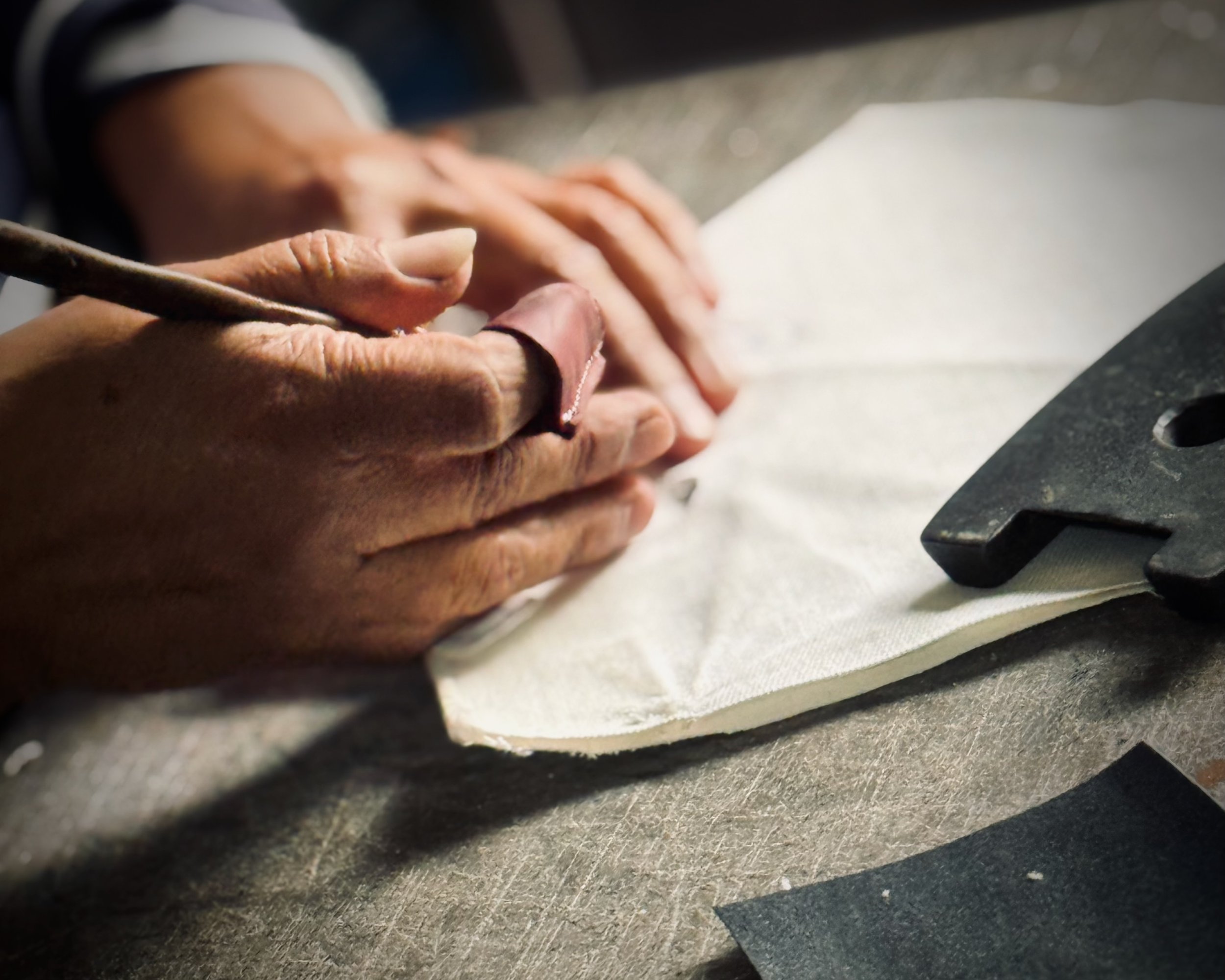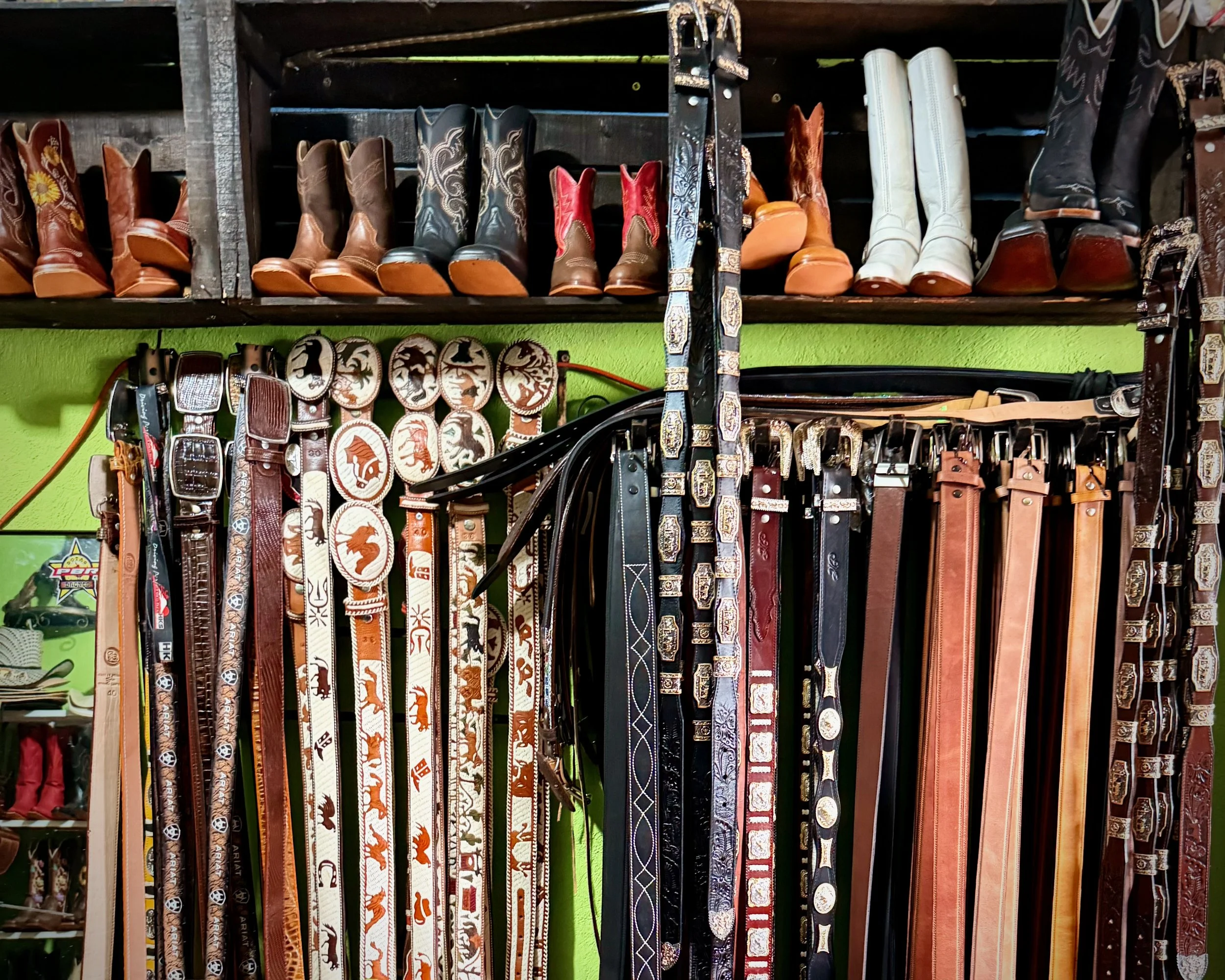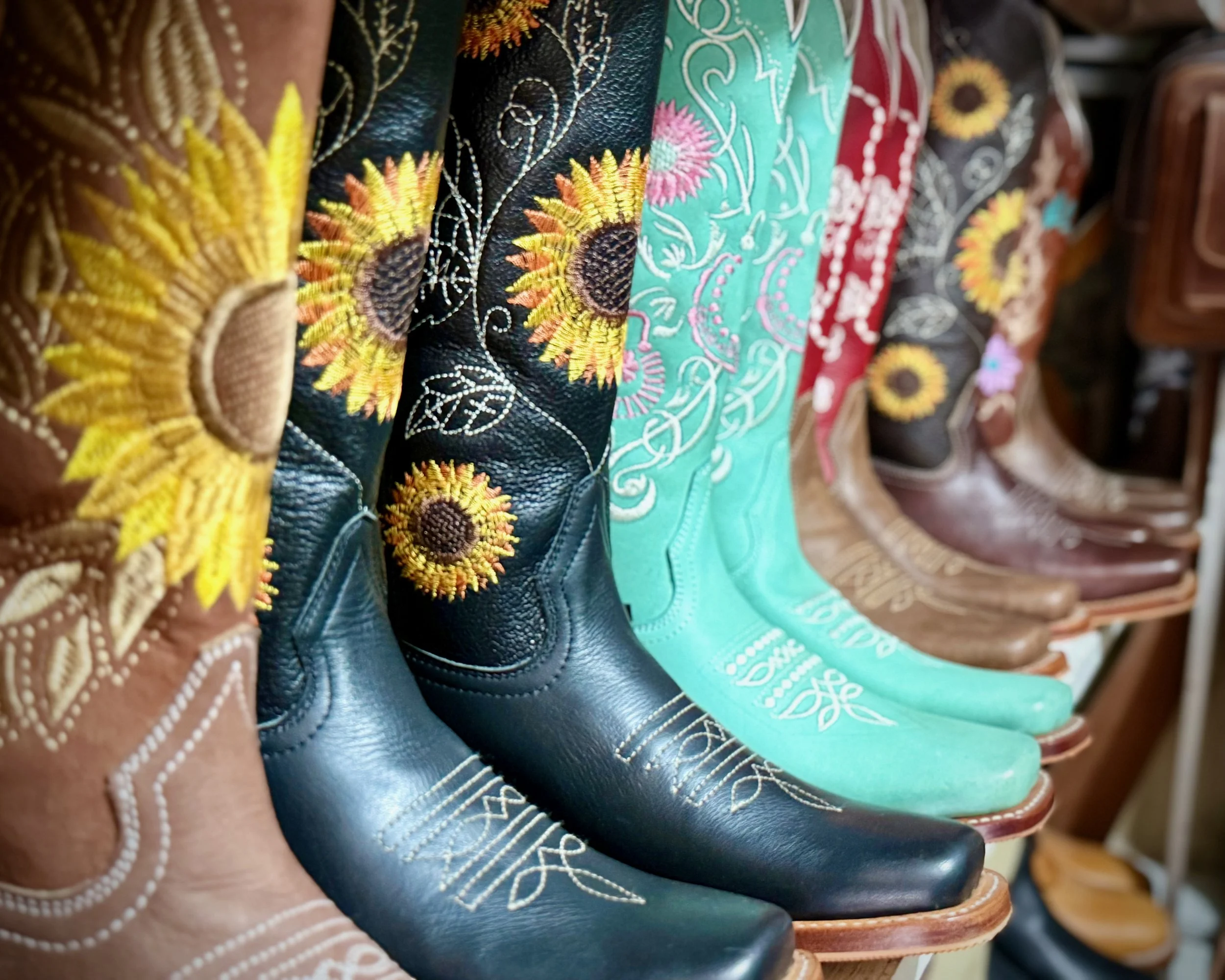Rogelio Azurdia
Pastores, Sacatepéquez
As the founder of Botas Bronco, Rogelio Azurdia has made artisanal boots and leather goods for 50 years. When Rogelio started Botas Bronco in the 1980s, he never expected his craft would come to define Pastores; he simply wanted to work. Orphaned at a young age, he left school at 13 to become an apprentice tailor. But when it was time to venture out on his own, he couldn’t afford a sewing machine. At 15, Rogelio shifted to bootmaking because the tools were simpler and cost less yet his tailoring skills gave him a head start in design work.
The name Botas Bronco reflects Rogelio’s designs, many of which are based on western-style cowboy boots. He crafts each boot using a three-step process. The first pass is the corte, cutting the leather using forms; the second pass is the pespunte, tooling the borders and designs; and the third pass is the ensuelado, using long needles to stitch the sole in place. The entire process takes a minimum of 10 hours, resulting in finely-crafted bespoke boot.
Over the years, Rogelio grew Botas Bronco into a thriving business, earning a reputation for his meticulous attention to detail. Photos of customers line the top shelves of the shop, including well-known names like the norteño group Los Tigres del Norte. As Rogelio trained younger bootmakers who eventually launched their own workshops, Pastores evolved into Guatemala’s leatherwork hub, providing a reliable income stream for residents who would otherwise be subsistence farmers. “This was the foundation that helped the town move forward,” he reflects. “It’s beautiful, all that’s been created here.”
In recent years, however, Rogelio has had to deal with challenges from competing merchants. Some newer shops, trading on the reputation of Pastores, import lower quality products from Mexico and attempt to resell them as artisanal. Others have attempted to bribe Rogelio’s workers to counterfeit his designs. In addition, some shops have shifted to using low quality synthetic leather and machinery to mass produce their boots. This has threatened Pastores’ reputation, and led to fewer sales at Botas Bronco, despite the fact that Rogelio has upheld his quality.
Perhaps the biggest obstacle, not just for Botas Bronco but to Pastores’ bookmaking heritage, is finding young workers willing to keep traditions alive. Rogelio used to teach four to six apprentices each year, but now, due to economic pressures, young people leave for the Capital to find higher paying, easier work. Botas Bronco has had no apprentices for the past two years.
“Honestly, this work is a great source of pride for me. It’s a job I love. It helped me move forward in life, support my family and take care of my grandparents. To me, this job is a blessing and I wouldn’t trade it for anything.”
“I’ve kept the tradition of making handmade, artisanal footwear, 100% by hand.”
